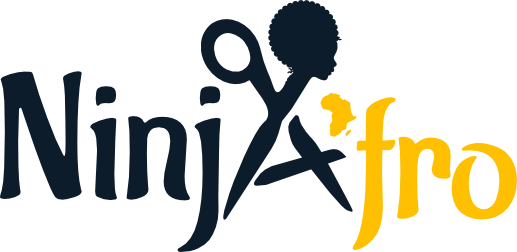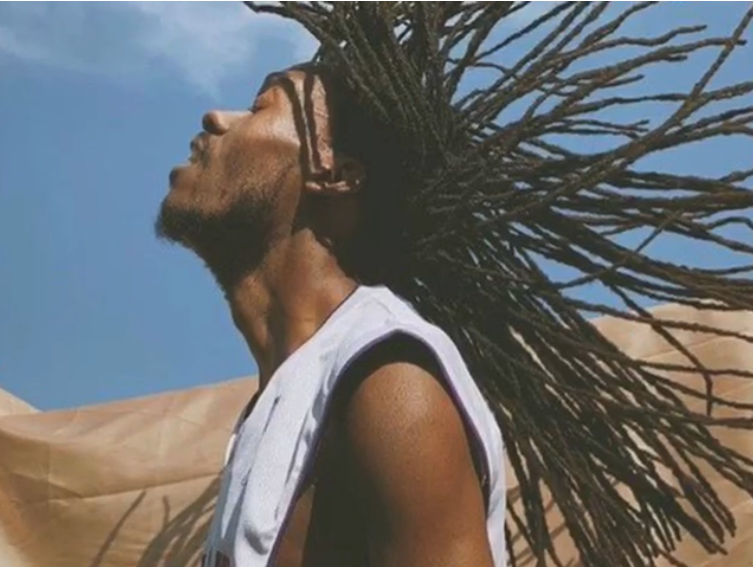Locs Journey with Josh Kye
Talented artist Josh Kye met with NinjA’fro to shares his views on locs and how his journey with locs has influenced his music and empowered him – even in the most challenging times.
Do you refer to your locs as “locs” or “dreadlocks”? Is it offensive when people call them “dreads”?
I use the word “locs”. I always have - from the beginning of my hair journey. Different cultures refer to it as different things; when I’m back in Uganda they refer to it as “dreads” and it feels that there’s a stigma surrounding it. I don’t really take offense to it but I can see how some people might because of how locs are seen as messy and unprofessional in the workplace. For me, I don’t see anything wrong with it. No matter what you call it, it’s my natural hair and it’s beautiful.
What inspired you to get locs and how long have you had them?
It’s been six years now since I started my journey with locs, but I had wanted to get locs for two to three years before that. I was just kind of scared to make the jump, especially because before I went into music I wanted to go down the psychology route and I was thinking “is this going to be professional enough to be in a work environment?”.
But I’ve always loved locs. As a kid, one of my best friends’ family were Rastafarian and they were so empowering to me. Even at age five I was learning about the history of locs from them. I was there every single day for around ten years, so a lot of their values were instilled in me and stayed with me into my 20s. But yeah, six years ago, it just felt like it was the right moment for me to commit to something.
What do locs signify for you?
I believe, now more than ever, that hair really holds an energy and a power. Especially when you let it grow out. Even before I got my locs, I was growing my hair out and it was dreading on its own, without me even doing anything to it. The fact that it does that naturally means a lot to me. Locs have been around for a very long time, across all the black subcultures across the world. And it wasn’t ever seen as a negative thing. It was a sign of strength. Warriors used to have long hair. If warriors cut their hair it was almost like they were cutting off their power.
I spoke to my mum about this a lot because when I first got locs, she kept asking “Why are you doing this? Men shouldn’t have long hair” and I was like “Mum, I’ve been going to the barber cutting my hair with a razor to fit this system and it feels like I’m cutting my power. No, I want to grow my hair out.” I’ve gone through so much in the past six years and my locs hold all of that, all of my emotions, all of my growth. And it shines through in my music. It really signifies a lot to me. It’s been part of what makes me who I am today.
What are some questions you often get asked about your hair?
When I first went back to Uganda, I got a lot of stares and assumptions were made about me because of my hair. In Uganda, male musicians who have hair like mine have a lot of negative stereotypes associated with them. My grandma especially had a lot of questions: “Why do you have long hair? Are you trying to look like a woman?” and I said “No, Jjaja! I’m a man! I’m a man!” But it’s funny because everyone in my family who objected to my locs now love them! Even my mum, she always helps me brush and take care of my hair. Lots of my close friends are asking questions and wanting to get locs themselves!
Outside my family, people often ask if they can touch it but I don’t like that. Every time I travel, like when I’m on the tube, I get loads of questions, especially if I’ve got it out or if it’s in a style: “Is that all your hair?”, “How do you wash it?”, “How long is it?”. I don’t mind answering them though, especially now that locs are becoming more popular. It’s definitely a conversation starter!
Do you get people making assumptions about your background based on your hair?
Yes definitely, a lot of people don’t know that I’m East African. I’m from Uganda and Rwanda, my mum is Rwandan but grew up in Uganda and my dad is Ugandan. Unless my hair is tied back and they can see my bone structure, they assume I’m from Jamaica . I don’t mind because we’re all one people - my skin is still black and my hair is still nappy like my brothers in Jamaica.
Have you ever had people from cultures where locs are historical feel offended or feel that you’ve appropriated their culture?
No, not really. I think if I was from outside of the race it would be an issue because it’s not just a hairstyle, it’s a lifestyle. There’s a lot of values that Rastas have that I now share, even though I’m Christian.
Does your hair influence your art? Similarly, has your art influenced your hair?
I think it’s a mixture of both. At first, my art influenced my hair. I’m really someone who likes to be at one with nature, and I feel like the lifestyle of having my hair in a natural state like locs feels very liberating. There’s no better feeling especially now that my hair is longer. I get lost, I go to another world, and my hair is moving. I almost get into a trance and I’m really vibing out. Having this hair has made me much more self-aware. I’ve looked into myself a lot deeper now and I definitely credit that to my hair. Looking into the history of locs and holistic living and wellbeing brought me home in a way.
My hair’s growth signifies my own growth. And that’s something that shines through in my newest project (Indie Soul) - the whole journey of someone, like me, who is an old soul, and is still quite connected to their roots.
Has getting locs affected how you’re perceived or how you perceive yourself?
Your hair is big part of who you are - the same way your fingers are part of you. I stopped looking at hair as something external. If I don’t take care of my hair, it can impact my entire wellbeing.
I feel like I’ve really stepped into myself and I’m in my prime. In a sense, getting locs made me believe in myself and love myself so much more to the point that I can do anything I put my mind to do. I was an introverted person – very quiet and focused - but now, I walk into spaces, including white spaces where I’m the only black person, and I’m confident as I am. I feel like I’m more of a holistic person now. My confidence is the result of embracing my hair and my overall wellbeing, mental health and nutrition.
The people in my life have seen my growth and the confidence radiating from me now. Everything’s transitioned nicely because I feel like I’ve grown as a man. My father passed away, I’ve had health issues, so much has happened and everything that I’ve gone through is held in my locs. These past years have shaped me into becoming a man, there’s no better practice for life than life itself.
Do you plan on having locs forever?
Yes, I do plan on having locs forever. I might trim it but I don’t see myself cutting it, unless my hairline completely goes.
What has this journey taught you?
My main learning is that if you have a vision of something, just go ahead and do it. Don’t allow people to throw you off from your vision. My hair journey has taught me to be patient with every process, even in my music, with my song writing process, and not to be too hard on myself.
What do you have say to people who are in the beginning of their loc journey or those who are on the fence about getting locs?
I would say if you’re on the fence, jump off the fence and do it! Don’t fixate on the goal of having long locs and putting it in a pony tail or a bun, focus on the journey and enjoy it. I know a few people who had locs for a while and got rid of them. I think that’s because they had an image in their heads, like we all do, but once they had achieved it they wanted something new. But stick at it; allow yourself to grow with your hair, it’s a much more fulfilling experience that way.
What do you look for in a loctician?
I personally rely on recommendations - especially here in London where it’s not always easy to find good places to get your hair done. You don’t want to fall into the hands of an inexperienced stylist; many people say they know how to do locs but they don’t - they just know how to twist hair. In the beginning of my loc journey, I was maintaining my own hair but then it was very time consuming and the wash got really difficult.
I got my hair started with this big loc company here in London but they did my hair and there was no love. I tried a couple of people then found the lady who does my hair now, I call her Auntie Jo. I see her every 2-3 months but if she’s not in the country or I’m traveling, I maintain it myself until I can see her again. I don’t let anybody else touch my hair! Auntie Jo really helps me nurture my hair, she advises me on how I can look after it. She even tells me off when I go too long without getting my hair done! She just knows me, and loves me, and I have so much love for her. I send all my friends to Auntie Jo.
I think it’s important to find someone you can connect with, no bad energy, and is invested in your hair’s health – it shouldn’t just be about money for them.


